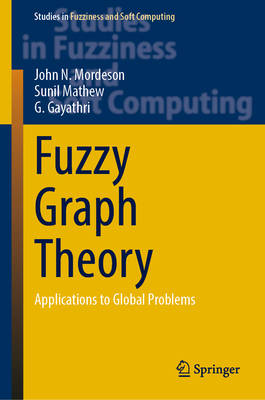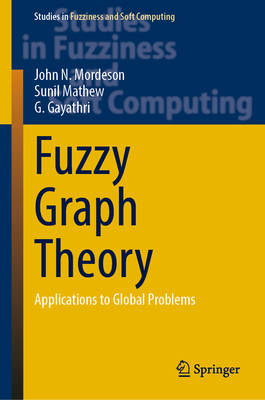
- Retrait gratuit dans votre magasin Club
- 7.000.000 titres dans notre catalogue
- Payer en toute sécurité
- Toujours un magasin près de chez vous
- Retrait gratuit dans votre magasin Club
- 7.000.0000 titres dans notre catalogue
- Payer en toute sécurité
- Toujours un magasin près de chez vous
158,45 €
+ 316 points
Format
Description
This book examines some issues involving climate change, human trafficking, and other serious world challenges made worse by climate change. Climate change increases the risk of natural disasters and thus creates poverty and can cause situations of conflict and instability. Displacement can occur giving traffickers an opportunity to exploit affected people. In the fuzzy graph theory part of the book, the relatively new concepts of fuzzy soft semigraphs and graph structures are used to study human trafficking, as well as its time intuitionistic fuzzy sets that have been introduced to model forest fires. The notion of legal and illegal incidence strength is used to analyze immigration to the USA. The examination of return refugees to their origin countries is undertaken. The neighborhood connectivity index is determined for trafficking in various regions in the world. The cycle connectivity measure for the directed graph of the flow from South America to the USA is calculated. It is determined that there is a need for improvement in government response by countries. Outside the area of fuzzy graph theory, a new approach to examine climate change is introduced. Social network theory is used to study feedback processes that effect climate forcing. Tipping points in climate change are considered. The relationship between terrorism and climate change is examined. Ethical issues concerning the obligation of business organizations to reduce carbon emissions are also considered. Nonstandard analysis is a possible new area that could be used by scholars of mathematics of uncertainty. A foundation is laid to aid the researcher in the understanding of nonstandard analysis. In order to accomplish this, a discussion of some basic concepts from first-order logic is presented as some concepts of mathematics of uncertainty. An application to the theory of relativity is presented.
Spécifications
Parties prenantes
- Auteur(s) :
- Editeur:
Contenu
- Nombre de pages :
- 254
- Langue:
- Anglais
- Collection :
- Tome:
- n° 424
Caractéristiques
- EAN:
- 9783031231070
- Date de parution :
- 03-03-23
- Format:
- Livre relié
- Format numérique:
- Genaaid
- Dimensions :
- 156 mm x 234 mm
- Poids :
- 557 g

Les avis
Nous publions uniquement les avis qui respectent les conditions requises. Consultez nos conditions pour les avis.






